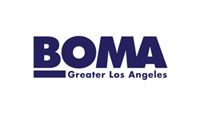
Rent Escalation Clauses in Commercial Real Estate
Much has been made of the use of escalator clauses in the context of the viciously competitive residential homebuying market. Comparatively less is said about the use of rent escalation clauses in commercial real estate.
Escalation clauses are exactly as they sound in that they increase the cost of rent or the bid for an available property to a specific figure or percentage increase. If you own/manage an in-demand commercial property or are considering bidding on a commercial property, it is in your interest to add an escalator clause.
Fair Rent With the use of an Escalator Clause.
The average commercial real estate lease is characterized by rent that increases as time progresses. However, the amount the rent increases and the frequency at which the increase occurs varies by each individual lease contract. The purpose of ever-increasing rent is to maintain pace with inflation that shows no sign of slowing and also to maximize the value of the property.
Weave in a rent escalation clause to tenants’ commercial leases and you’ll specify exactly how much more those tenants pay in rent with each successive month, financial quarter, six months or year.
There are two primary types of rent escalation clauses:
• A clause that directly increases rent
• A clause that is linked to heightened operating and/or tax costs
Some leases consolidate both types of clauses into a single payment. There is also the option of adding distinct clauses to commercial lease contracts.
In general, commercial rent typically increases as a set percentage as time progresses. As an example, many such properties increase at a rate at or near 5% per year. Take some time to review all options and strategies and you might determine the optimal approach is to add an escalator rent clause that is a variable percentage increase tied to the Consumer Price Index or CPI for short. CPI is calculated by the United States Bureau of Labor Statistics, gauging the average consumer price alterations as time progresses.
Stepped increases in commercial rent, also referred to as set percentage increases, can be used to hike rent costs per square foot. As an example, properties that begin at $30 per square foot in the initial year can increase by $2 per year for each year of a half-decade lease.
Escalation Clauses for Taxes and Operating Expenses
Though tenants dread the idea of paying increasingly more to rent commercial real estate to offset the landlord or property owner’s increasing operating expenses and rising tax burden, such is reality in today’s economic climate. A rent escalation clause to offset taxes and operating expenses does not directly hike tenant rent. Rather, this clause boosts the operating expense amount reimbursed to the property owner or landlord.
As an example, if maintenance expenses for the property’s common area increases with each successive year, it is appropriate to include a clause that mandates the tenant will be billed for such maintenance fees through an annual increase in billing.
There is also the option of adding an escalation for tax pass-through in which the tenant pays for hikes to the property tax increase in accordance with a set percentage determined by the amount of square feet/value of the commercial property.
Escalation Clauses in the Context of Commercial Real Estate Bids
Escalation clauses are also used in the context of bidding for commercial real estate properties put on the market. Add an escalation clause to an offer submitted for a commercial real estate property and you’ll greatly improve your chances of winning the bidding war.
As an example, if a coveted commercial real estate property is listed at $500,000, an offer of that amount that includes an escalator clause that extends all the way up to $575,000 with an additional $5,000 tacked on above the next-highest bid might be enough to overtake competing offers.


